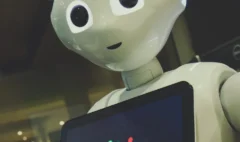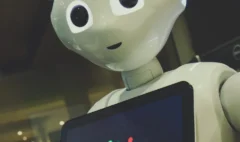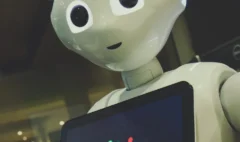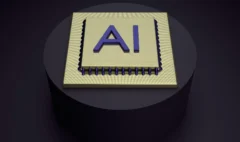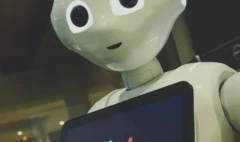How To Start Coding As A Beginner
How To Start Coding As A Beginner
There’s no question that coding is a valuable skill. Whether you want to become a web develop, build mobile apps, or just create a simple website, coding is an essential part of the process. But learning to code can be difficult – especially if you’re a beginner. In this article, we’ll walk you through the process of learning to code, from start to finish. We’ll start by discussing the benefits of coding, and then finally we’ll provide a step-by-step guide for how to learn to code.
Why Learn To Code?
Coding is a valuable skill because It allows you to create anything you can imagine. With coding, you can build websites, mobile apps, games – anything you can dream of.
If you are searching for “how to learn to code,” it could be because you want to advance your career. In truth, you need to learn coding skills or be ready to acquire them if you really want to improve your skills and qualifications. So, learn to code while you’re young even though people say you can’t
You might be looking to develop software or games for your friends or colleagues, or you may be motivated to learn the language of technology. Either way, learning computer code can be a major asset to your professional and personal development.
Therefore before diving into your first programming lesson, think about why you want to code in the first place. Answering this question will help you devise a plan.
This will help you decide what programming language you will opt for, what sorts of projects you would like to complete, and ultimately, what you would want to use your skills for. Here are some benefits of coding to both you and your
1. Coding Builds Your Professional Skills
Knowledge of computer programming is a valuable employment asset. As technology continues to weave into our everyday lives, understanding coding will become more prestigious among job seekers. A job posting from the job search site Indeed showed several of the most coveted jobs that have to do with programming.
If you’re looking to make a career switch and you’re considering becoming a programmer, or a technical role within your overall field, you should be familiar with at least one programming language.
Even if you are not working exclusively in a technical role, coding experience helps a lot. It shows technical expertise and an ability to grasp abstract concepts. Coding skills make you a valuable resource in any organization regardless of your career goals. Also having coding skills enables people to choose to take courses as a coach, a freelancer as a side hustle, or a full-time profession entirely.
2. Coding Lets You Create Unique Things From Nothing
One of the coolest benefits of learning how to code is the ability to bring your ideas to life. Have a concept for a website, app, or computer game? Now, you can build it exactly how you want, then share it with the world.
Whether you want to monetize your project or post it on an open-source platform, It’s gratifying to know you can build programs that, until now, you’ve never fully understood. Plus, projects are essential to the learning and job-seeking process.
3. Coding Can Help You Earn More Income
There are differences between coders and programmers. As you continue to learn about coding, you may start to specialize. Many of the highest coding salaries come from the ability to offer your skills in a specific type of coding.
For example, as you continue to code, you may decide to become a developer. Besides writing code, developers also debug software and work with source code. Developers usually specialize in a specific programming language.
You might also decide to become a mobile app developer or a web developer. These are the most popular coding roles. Apps and websites are downloaded by hundreds of millions every day. In fact, there are over a billion websites, and over one billion mobile apps.
4. Coding Can Help You Better Understand The World Around You
Learning even just the basics of computer programming will help you understand the components of the growing. You’ll gain an entirely new perspective on the technologies in your life and an appreciation for how it all comes together.
5. Coding Is Fun
It’s cheesy but true — for many, learning to code is a rewarding and enjoyable experience. After you have the basics down and start on your own original projects, the process will feel less like learning and more like leisure. After all, if you’re not enjoying it, why pursue it as a career?
What Is Coding
Programming is the process of giving instructions to a computer. These instructions have the power to power websites, software, and applications used every day. It is also used to create games or enhance apps.
In computer science, programs are written in a language called source code. Source code is written in a programming language. The programming language can be visual and is often written in a textual format. There are several programming languages; the most popular ones are Java, Python, and JavaScript.
There’s no question that learning how to code is challenging and time-consuming. But if you’re motivated to learn this skill, you’re better off starting young.
How to Start Coding
Thanks to the internet, there’s never been a better time to learn to code. But the sheer volume of options can stall some new coders before they even begin.
Luckily, there is an answer. Read through the steps below and you’ll be able to start coding just like a pro in no time. In this section, we’ll cover how to learn to code for beginners.

1. Ask Yourself Why You Want To Learn Coding
As mentioned earlier, coding is a great skill to have. It’s valuable to employers, and you can make money as a freelancer or in a career as a coder and it can tempting to jump right in when you start coding. But if you don’t have an end goal you may become frustrated and stop learning before you get to the fun.
So, before you start studying, think about why you want to know how to code. Think about the projects you want to complete, why this skill excites you, and what resources you have available.
For example, say you want to become a developer to earn more income for your family. Do you know where you want to work and what kind of projects they need developers for? Are you ready to put in the time to learn to code, learn the right programming languages, and build projects that show you have what it takes?
Setting a broad goal like that can be really frustrating. Instead, start with smaller, more specific goals. For example, say you want to build a mobile app for your friend who is training for a half-marathon one year from now.
This goal will:
- Helping you build the skills you need gives you a sense of which programming language to start with and sets a deadline so you can manage your time while learning.
- It will also help you stay motivated even though you get bored, frustrated, and tired of learning.
So you want to be a coder? In this comprehensive guide, we will take you through everything you need to start coding as a beginner. From learning the basics of computer science to understanding how code works, and finally putting it into practice – we’ve got you covered.
2. Choose Which Coding Language You Want To Learn First
If you’re trying to figure out which programming language to start with, think about your long-term goals. Are you coding for fun or to advance at work? Do you have a flexible timeline or do you need to finish a project in a hurry?
As a beginner, you may want to start with a language that doesn’t use data structures or algorithms. If that’s the case, HTML or CSS are great places to start. But languages like Java and Python are also great for beginners, and they also have a wide range of applications.
It can sometimes take months to learn a programming language, so take some time to make this decision to make sure that your time is well spent.
3. Take Online Courses
Learning to code no longer requires a classroom setting. Today, there are thousands of online programming courses that cover everything from basic HTML to data structures to complex algorithms.
Your first course should introduce the basics of a language and contain interactive modules and assignments to guide your learning. Courses create a structure for learning, which is essential as concepts in computer science build on each other. An organized course keeps everything digestible and ensures you’re learning things in the correct order.
Choose an option that is great for determining early on whether you’re ready to invest the time to learn a particular language and there are also plenty of paid courses available for a fraction of what in-person classes will cost you. Some paid services offer free courses or trials if you want to get a feel for their teaching before you commit.
4. Watch Video Tutorials
You’ve probably watched a YouTube tutorial or two — why not do the same for coding?
While online courses are your best bet for hands-on experience, online videos can supplement your learning and occupy your curiosity. My personal favorites include:
5. Read Books And Ebooks
Prefer an old-school approach? Pick up a book on your beginner language of choice. Books will introduce you to fundamental concepts and inform your coding.
Here are some established texts for each recommended beginner language:
6. Check Out How Other People Code
It’s easier for some people to edit someone else’s work than it is to create from a blank page. If this is you, a great way to learn how to code is to go through someone else’s code. Checking out other programmers’ code can also inspire you and push your coding skills even further. This approach will help you:
- Better understand your own code
- Understand new code faster
- Give you tangible examples of quality coding
Start with a program or code file you like. If you’re not sure what code to start with, GitHub and search code are great starting points. Try to start with peer-reviewed code or open-source projects if you can.
7. Complete Coding Projects
You learn coding by doing projects because there’s no way around it. You can read up on all the concepts and syntax necessary to write functional code., When you code, you’re facing a different problem: there are not enough examples of how to do something. If you can’t get your hands on a project to start coding, don’t worry. In fact, this is a good problem to have.
But unless you put what you learn into practice, the ideas won’t fully materialize in your mind. That’s where projects come in. A project is any program (or website) built with your language of choice. When starting out, keep projects short-term.
If you’re taking a course, you may get projects designed to solidify a concept. There are also loads of beginner programming projects you can try on your own. Some classic projects include:
- A time converter, in which the user submits a number of seconds, and your program gives the equivalent in hours, minutes, days, etc.
- A random number generator produces a random number between two values specified by the user.
- A calculator, in which the user specifies their inputs and mathematical operation, and your program gives an output.
- An address book, in which users can submit contact names, then search for contacts stored in your program.
- An alphabetizer, in which the user offers a list of words, and your program sorts them in alphabetical order.
- A hangman game, in which the user tries to guess a hidden word by inputting letters, and your game gives feedback for correct or incorrect guesses. When the user guesses all the letters to your word, they win.
A quick Google search will reveal even more mini-challenges that require you to apply your skills to real-world problems.
8. Find A Mentor Or Join A Community
The resources I’ve listed so far are all valuable, but they’re mostly solo efforts. Having a friend or an online community to give further guidance can be invaluable to your learning. I recommend finding a mentor to learn new skills as you progress. You will encounter issues you will just not be able to crack. This is probably where mentors can help.
A mentor doesn’t need to be an actual teacher — they can be anyone knowledgeable in your language. They should be able to explain difficult concepts and point you to solutions. An experienced mentor can help you follow coding practices not covered in tutorials and offer advice for navigating a career in tech.
You can also consider joining a community of programmers. Choose meeting places in your area that will probably appeal to programmers, and where connections can be made in person. Search for local Leaners around your environment(to physically meet fellow programmers) and make in-person connections.
9. Attend A Coding Boot Camp
A short-term coding boot camp is a program in rapid paced-training, focusing on a comprehensive curriculum for several months. These programs are a launchpad for your career as you move from a new skill assessment to a technical interview. They may not be the best fit for you if you lack coding experience but coding boot camps can be intensive and expensive. Therefore these programs are mostly for beginners, desperately trying to get into development, who put their time, energy, and money into learning their profession.
10. Use Tools That Make Learning To Code Easier
While it’s great to know that you don’t need any special tools to write code, there are tools that can help you learn faster. These tools include:
Editor Tools: It’s easy to get stuck in a rut with a text editor. You can expect to use them every time you write code, and they’re not always the best for editing.
To be a better coder, you need to learn to use an IDE. An IDE is a tool that integrates your text editor with a code editor. The code editor includes a code browser that allows you to navigate code and a built-in debugger to test your code as you write it.
Text editors include features to make coding easier like color coding, auto-complete, find-and-replace, and dark mode. Most professionals use a code editor because this tool can help you write clean code faster. Code editors are like text editors, but they have extra features that help you manage and edit your code.
- Console: You’ll also want to get to know your computer a little better. When you start coding you should learn how to navigate the console. This is the text-based interface for your operating system. The console lets you find files and execute commands on them more quickly than the standard graphical user interface (GUI). Familiarize yourself with how to use it, including the basic UNIX commands, since you’ll be doing things that aren’t possible in the GUI.
- Project Management Tools: Many projects start simple but get more complicated as the project goes on. Using a project management tool you can share files, update timelines, and break out separate parts of coding projects. This makes it easier to keep track of side projects and extra files while sticking to your timeline.
- Troubleshooting Tools: As you work on your coding projects, you may run into bugs, roadblocks, and other challenges. This can be super frustrating Rubber Duck Debugging may sound silly, but it can help you simplify your problem and find useful solutions. You can use a rubber duck to help you troubleshoot problems while you’re coding. This tool is a great way to explain a problem to someone who doesn’t know the problem as well as you do.
Related Article: 15 tools to learn coding basics
Conclusion
Even though coding can be fun as you dive more into the fundamentals, the process is not easy. It takes some time to get into the rhythm of creating new things. But once you get going, you will find coding provides you with a great feeling of fulfillment.
You can always refer to the list curated in this article to help you get started. Subscribe to our newsletter to get more articles on skills you can use to improve yourself and your career professionally. contact us for further assistance and questions on how to learn any skills of your choice on skillzonia.



